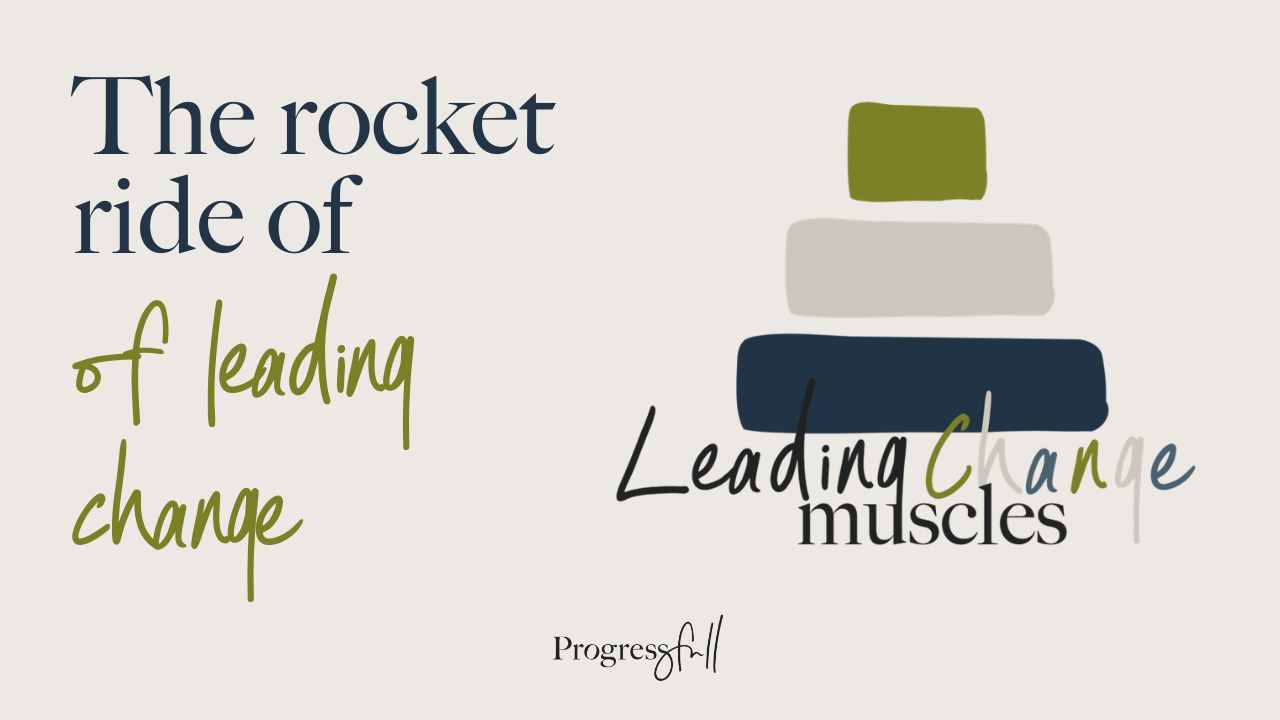The rocket ride of leading change

To say that an enormous part of a leadership role in 2023 is about leading change is to understate the obvious
From startup founders to C-suite executives at multi-billion dollar companies, a fundamental key skill set is how to lead people through change. Post pandemic, changes we had anticipated to take years occur in months and, in some cases, weeks and even days
Understandably, leaders often struggle to navigate these changes simultaneously, dealing with economic, logistical and health crises, which now regularly unfold and impact businesses at top speed
Advancements in technology, human interconnectivity, AI, and the network effects between them, have created a new reality where change is rapid, constant, and everywhere
Completely exhilarating and scary too … that’s the reality of change

When we lead change it's easy to envision the future, that place beyond our wildest comprehension, that is utterly amazing
What we often forget is how fast, powerful and scary others find the rocket ride experience of change. Our role as a leader is to never forget that we need to take others with us on the ride. This means slowing down and coming alongside, spending time understanding what’s scaring, what speed is too fast, where to course correct, where to slow down, so the pace and power of the rocket ride is exhilarating yet not too scary
Brilliant and effective leadership is now defined by the ability to navigate this new reality. The problem is today’s leaders have often not learned how to do this. Leading change is a super human endeavour, due to the difficulties and false starts emotions bring
To navigate this new world, understanding the impact of emotions during the rocket ride of change, is now a super power, as opposed to something outsourced to the HR team. Navigating this new way of leading is to navigate this future. Leading is then more about building wisdom in yourself and your teams, and less about being all powerful, more about building everyone's emotional intelligence, and less about your ability as a leader to make all the decisions
These new style leaders swap positioning themselves as all powerful, controlling ‘know it all’ individuals for being humble, authentic and open. As a result people are more likely to trust them and feel psychologically safe
This is important because without trust and psychological safety, individuals and teams don’t feel empowered. Researchers have identified that the most important factor essential to the highest performing teams was psychological safety. When people in teams feel safe to be vulnerable in front of one another and to take risks, they perform at their best
Why is this important?
With so much change impacting businesses, no one individual can have enough depth of knowledge across all topics. Gone are the days when having a brilliant mind combined with working on the shop floor, mastering every role in the company enhanced with an invigorating MBA, means leaders are equipped with enough skills and knowledge to keep up and call all the shots
Instead, to keep businesses nimble and able to adapt, leaders need to demonstrate continuous learning, and a growth mind-set which is embedded in the culture, occurring across all functions and levels, so that everyone is optimising their contribution and potential, not just a handful of elite individuals at the top of the organisation
These new leadership skills involve coming alongside people so that whilst there is uncertainty and ambiguity, there is also a sense of shared purpose and values which provide a grounding sense of continuity, community and steadiness. This means people can focus, collaborate, bounce back and adapt so they can contribute their best whilst experiencing the rocket ride of change
How about today you make sure you aren’t leaving people to feel they are just hanging on when experiencing the rocket ride of change
To help leaders navigate this new world we created our Leading Change Upskill (Upskill is our name for a course). Our Leading Change Upskill is about leading yourself and others through change – handling the difficulties and false starts that change creates – ensuring you know how to take others with you on the ride
Discover our Leading Change muscles Upskill here




